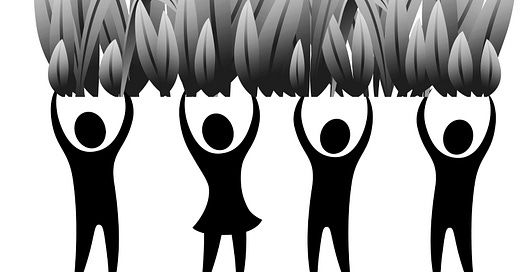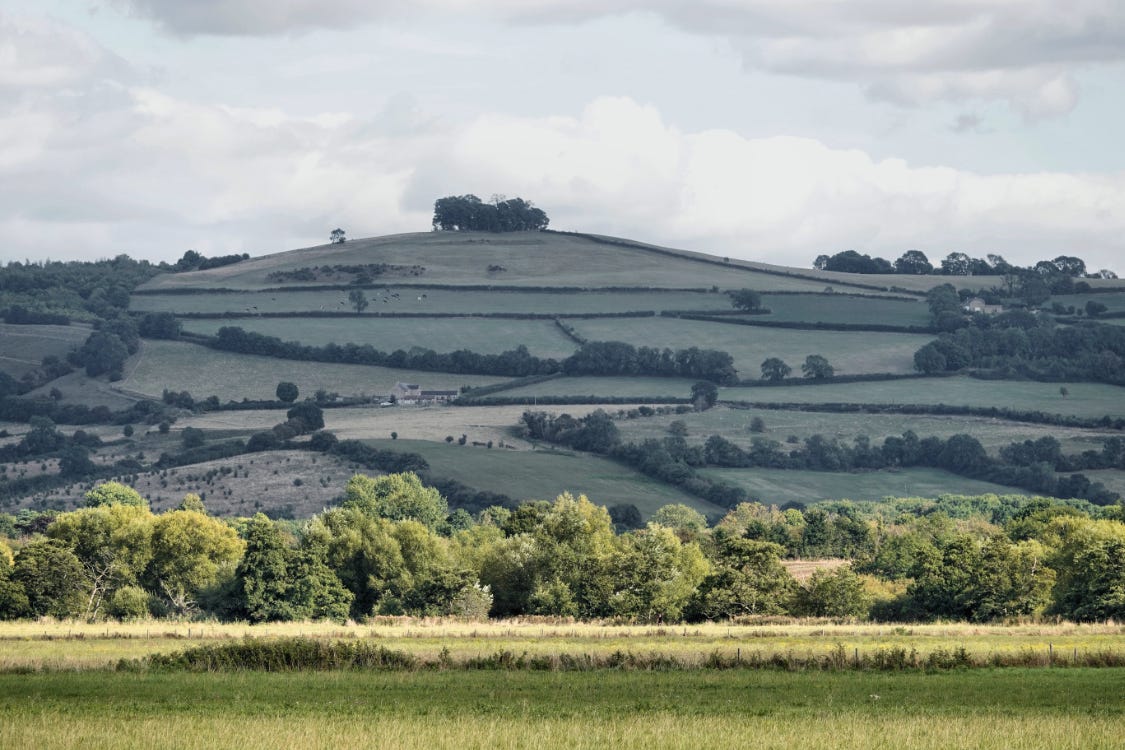This was first published on our sister blog – At the grassroots. One which come the autumn, will be archived, with the content being added to this blog. What our politics have been about ever since our days in the Independent Working Class Association is building for change from the level of the neighbourhood upwards. If there’s any area where we have a bit of expertise and experience, this is it. Over the years we have learnt a lot from the experiences we’ve had working with, and being a part of, grassroots, neighbourhood level projects. Some have been very positive, others have been pretty painful. The point is to learn the lessons from all of those experiences and, do our level best to pass them on.
This may be stating the bleeding obvious but, projects and campaigns based in and focused on their locales are undertaken by people living there. That's people who have a genuine connection to their community and who care deeply about how it will develop into the future.
Where we live in Keynsham, and in the neighbouring cities of Bristol and Bath, there are a wide range of community based groups and projects, each of which in their own way are striving to make where they're based better places to live. Some are reactive, having to deal with decades of neglect of their communities, plugging the gaps left by a system that doesn't care. Others are more proactive, working at ways of localising food production and doing what they can to widen access to fresh, healthy food. Among this range of groups, there are those who genuinely want to change the system but who realise that can only be done by building from the base upwards. A range of these groups and projects are listed on this website: At the Grassroots – The Directory.
A project for change at the base will only work if it's run by and for the community. Projects that are seen to have been parachuted in will not get the legitimacy they need to survive, let alone achieve anything. If a project based in a neighbourhood isn't owned by the community, perceptions of what it is and aims to achieve will soon turn towards the negative. Most people are pretty sussed and will be able to clock pretty quickly if a project is genuine or has been parachuted in.
For those that have been paying attention, trust in authority is in decline. A decline that was accelerated by the response to the Covid crisis. Not only is trust in authority in decline, trust in movements that seemingly appear out of nowhere is pretty poor. While people are becoming more sceptical of authority and big movements, if they see something in their neighbourhood they can sense is genuine, they will at least come to respect it, hopefully, some will want to become an active part of it.
This is why we support community projects that bring people together, regardless of their backgrounds. At the end of the day, whoever we are and wherever we’re from, we all want to live in a neighbourhood where people look out for and care for each other. A neighbourhood that in an age of failing public services can provide networks of support for its more vulnerable members. A neighbourhood that’s making steps to take control of its food supply with community gardens/allotments, community food kitchens, food buying groups and the like. A neighbourhood that once it gains a degree of self confidence about looking after itself, will start to ask some searching questions about power, who exercises it and how it has to be brought right down to the grassroots.
Acknowledging attachment, connection and in some cases, spirituality, is something explored in some depth in this post: A sense of belonging 27.10.24. A lot of what we're about as a project is building a sense of community cohesion and solidarity. A key part of that is having a feeling of attachment and connection to where you live. That’s regardless of where people may have originally come from. Having that is the spur to wanting to get involved in community projects, to make where you live a better place to live. What’s important is that this feeling of attachment and connection applies to the people in your community as well as the location you live in.
It’s about working towards how we should be living. That’s living in a community where people have an attachment and connection to the village, town or city neighbourhood they live in and the people they live alongside. It’s about looking out for each other, building the bonds of solidarity and caring about the locality you live in. It’s about real connections in real life, not fake ones online. It’s the opposite of what the faceless corporations and the governments who do their bidding want for us which is living in an atomised, selfish society where people are actively encouraged to compete with and fear each other. There are many more of us than them though. Whatever they try to do, they’ll never eradicate people’s natural desire for a sense of attachment and connection to place and community.
There's a spiritual dimension to this as well. When we lose our relationship with nature and the landscape around us, we lose our sense of what is real. Reality is increasingly not what we should be seeing with our eyes and feeling with our hearts. Instead, we’re having a fake reality foisted upon us by the media, an entertainment industry that’s essentially a distraction industry and increasingly, by virtual reality and the looming nightmare of the Metaverse.
What is also under threat is our organic relationship with each other. Relationships that started to change and be fractured by the onset of the industrial revolution which tore our ancestors from their roots and threw them into the hellholes of the factories and the slums. With the advent of mass entertainment, relationships were judged by false ideals we saw on the screen. With the advent of the Net, relationships faced the threat of becoming increasingly virtual. Some have fallen for that, others continue to resist.
We are talking about a crisis of loss…
The loss of a sense of community and belonging as people have been more or less forced to uproot themselves to move to where the work is.
The loss of attachment to a place.
The loss of attachment to a landscape.
The loss of any sense of a relationship with nature.
The loss of the familiar in a world that’s changing ever faster and increasingly, in ways we can’t understand.
The loss of the familiar that will provoke a backlash, trust us on that…
The loss of certainty and continuity in a rapidly changing and increasingly baffling world.
The loss of attachment to each other that comes from having to live in a hyper mobile society.
Any project for radical change has to be based on an understanding that people want roots and connection. Roots and connection come from a sense of belonging to a place. A sense of belonging and attachment to a locale and a community will spur people to do what they can to protect it from any threat, and to make it a better place for everyone to live in. This for us is why change has to come from the base, which is where we live and the people we relate to in our communities.
To conclude, as you can see from this website – At the Grassroots – The Directory – there are many groups and projects working away at the grassroots in their communities. What it does indicate is that the foundations for the new world we want where people look out for and care for each other and also, where they live, are already in place. Please note that this is far from a comprehensive list and a lot more work needs to be undertaken to expand it. If anyone in the Avon region wants to come on board to help us out with this, they will be more than welcome.








